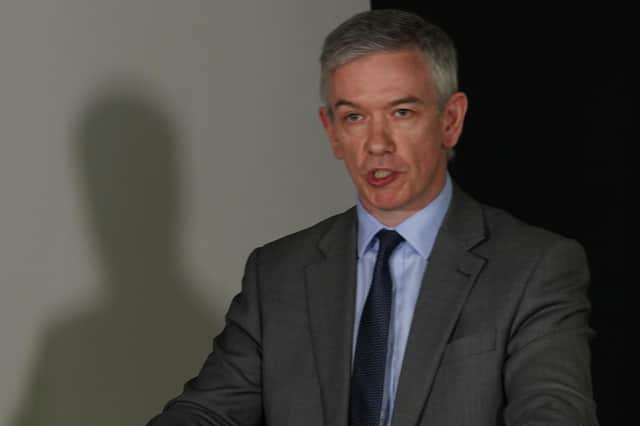Scotland's CMO tells Covid-19 affected families to discuss end of life care


Dr Gregor Smith said while conversations about resuscitation or ventilation were “difficult” they were “necessary”.
His remarks come as the number of deaths from those tested for coronavirus were revealed to have risen by five since Sunday, to a total of 1862 and the number of people testing positive had been raised by 141 to 13,627.
Advertisement
Hide AdAdvertisement
Hide AdThe number of people in hospital with confirmed or suspected Covid-19, was down 31 to 1,453 since yesterday with 80 patients in intensive care, a fall of two.
However, figures from last week showed that the number of deaths in care homes were still rising, with fatalities making up 59 per cent of all coronavirus deaths in Scotland. Currently there are 4,503 cumulative cases of suspected Covid-19 in care homes – an increase of 58 suspected cases from yesterday.
Dr Smith raised the issue at the Scottish Government’s daily briefing. He said the small number at “much higher risk” of becoming seriously unwell should be “prioritised for anticipatory care planning” to “provide an important opportunity for people to have conversations with carers and loved ones about the type of care they would like to receive if they become unwell.”
He added: “We know that treatments for coronavirus focus on supportive measures and some specific care options like ventilation are of low benefit or do not help people already in poor health.
“One particularly challenging example is asking people about whether or not they would want to be given CPR in the event if their heart should stop beating. It’s a difficult conversation to have and needs to be done sensitively and only at a time that’s right for them.”
Acknowledging it can be “a difficult subject” to raise, he said it had been done “in clinical care for many years” and they provided “an important opportunity for people to have conversations with carers and loved ones about the type of care they would like to receive if they become unwell.”
He added: “It is this conversation and expression of what’s important to them in their care that’s the important thing. The document that comes out of these conversations records it for others to see, so it must be done sensitively with the quality of these conversations at the forefront of people's minds.
“We know that treatments for coronavirus focus on supportive measures and some specific care options like ventilation are of low benefit or do not help people already in poor health.
Advertisement
Hide AdAdvertisement
Hide Ad“People may be worried about the future so this is an opportunity to have a helpful conversation about what matters most to them if they become very unwell and need end of life care. These discussions can be extremely difficult to start, but they are important.”
“One particularly challenging example is asking people about whether or not they would want to be given CPR in the event if their heart should stop beating. It’s a difficult conversation to have and needs to be done sensitively and only at a time that’s right for them.”
He said having the conversation “allows people to think about what choices they would wish to make” and if “done well can contribute massively to good personalised care.”
Age Scotland chief executive Brian Sloan has previously called for assurances that care home residents have “fair and equal access to medical treatment”.
A survey by Inclusion Scotland also found that disabled people were worried about being pressurised to sign do not resuscitate (DNR) notices and the possibility that they will be denied treatment because of their impairments should they contract Covid-19 and have to go to hospital.
A message from the Editor:Thank you for reading this story on our website. While I have your attention, I also have an important request to make of you.With the coronavirus lockdown having a major impact on many of our advertisers - and consequently the revenue we receive - we are more reliant than ever on you taking out a digital subscription.Subscribe to scotsman.com and enjoy unlimited access to Scottish news and information online and on our app. With a digital subscription, you can read more than 5 articles, see fewer ads, enjoy faster load times, and get access to exclusive newsletters and content. Visit https://www.scotsman.com/subscriptions now to sign up.
Our journalism costs money and we rely on advertising, print and digital revenues to help to support them. By supporting us, we are able to support you in
providing trusted, fact-checked content for this website.
Joy Yates
Editorial Director
Comments
Want to join the conversation? Please or to comment on this article.